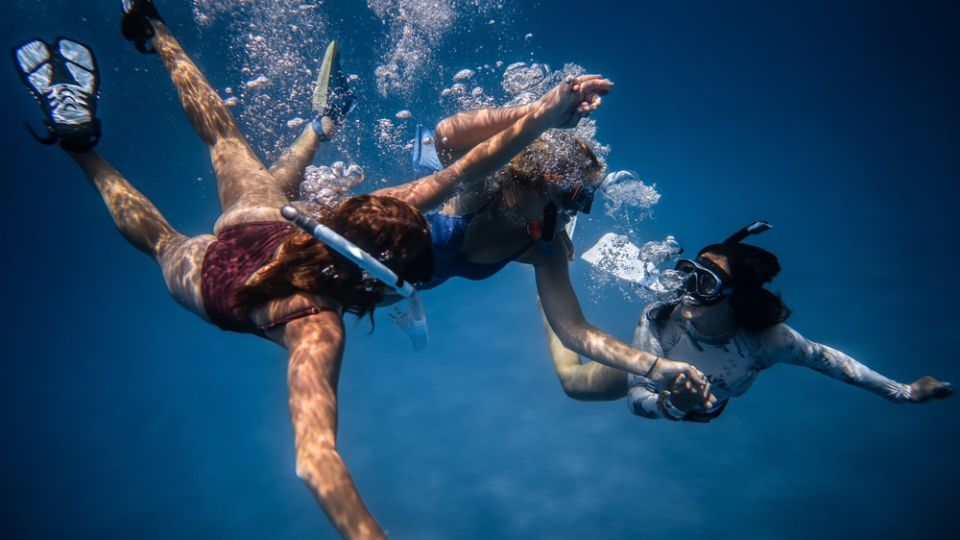The Importance of Water Safety Education for Families
01/29/2024 | Written by Nikos Kaskaras in Swimming Lesson Tips
Living in a country surrounded by the sea is a blessing. However, it also means that there are vital concerns for families and their offspring. The issue of water safety education is therefore a necessity that all parents should take seriously.
Drowning Prevention
Of course, when it comes to water safety education, drowning prevention must be the number one priority. The National Drowning Report for 2023 revealed that 281 people lost their lives to drowning in the country last year, with many more suffering non-fatal injuries. More worryingly, drowning is one of the leading causes of death among children. Preventing accidents in the water and ensuring safe swimming are essential to reducing the number of such incidents. Drowning prevention and water safety are priorities of national policy, but also require the promotion of water safety education within families.
Swimming Lessons for Kids
Learning to swim is undoubtedly the most important means of preventing children from drowning. Children's swimming lessons are particularly beneficial at this tender age. Skills acquired at an early age will last a lifetime, and there's always room for improvement. Children's swimming lessons can start as early as 3 years old to familiarise them with the water and get them used to moving around in an aquatic environment. Such lessons not only teach children how to swim, but also instill confidence in the water, helping them to become comfortable and competent swimmers.
Open Water Safety
Although swim classes take place in swimming pools, the vast majority of people also swim in the open sea. It's logical and wonderful, because the feeling of the sea and the natural element it represents can create majestic feelings. At the same time, however, open water swimming requires extra precautions. Whether it is beach safety, lake safety or ocean safety, all families should take the subject seriously. Open water swimming is different from swimming pools. While swimming pools are confined and can be monitored and supervised more easily, the open sea has no boundaries. What are the basic precautions that all parents should take?
- Always check the weather before swimming
- Choose beaches with lifeguards
- Never leave children unsupervised
- Always swim in pairs so that you can give assistance if needed
Swimming in the open sea is a great pleasure. It's up to parents to make sure it's safe at all times.
Water Safety at Home
Home swimming pools are on the rise in Australia. The resurgence began during the pandemic years when people radically changed their routines and preferences. Recent data suggests that one in seven Australians live in a home with a swimming pool or spa. The number of drownings in swimming pools in Australia rose last year to 29. Implementing safety measures to prevent accidents should be a top priority for all families. There are certain steps every family should take:
- Drain pools after use
- Learn CPR (Cardiopulmonary Resuscitation) and basic water rescue skills
- Avoid drinking alcohol while swimming
- Supervise children when they are in the pool
- Installing fences around home pools for maximum safety
Home pool safety is not a difficult task. Families who incorporate the above measures into their daily routines will ensure safe water play and home water safety.
What to Wear when Swimming
Building a water safety culture is a process that involves many aspects. One of the most important is the choice and use of the right equipment for swimming. This part is relevant to the swimming ability of each member of the family. Most competent swimmers may need nothing more than their swimsuit and swimming goggles. However, for the less competent swimmers, especially the younger ones, it's a different story. Infants, toddlers and children need to wear appropriate swimwear to ensure their safety. This includes the following
- Newborn life jackets
- Infant life jackets
- Life vests for infants
- Wetsuits
- Swimming cap
Teaching Water Safety
The teaching of water safety should be a continuous and inter-temporal process for the families as well as for the maritime countries. For this to happen, water safety education resources must be available in all the country's educational institutions. Learning how to swim safely from an early age is crucial to achieving the ultimate goal of preventing drowning altogether.
Water safety education should be a continuous and intertemporal process for families as well as for maritime countries. To achieve this, the resources for water safety education must be available in all educational institutions in the country. Learning to swim safely from an early age is crucial to achieving the ultimate goal of preventing drowning altogether.